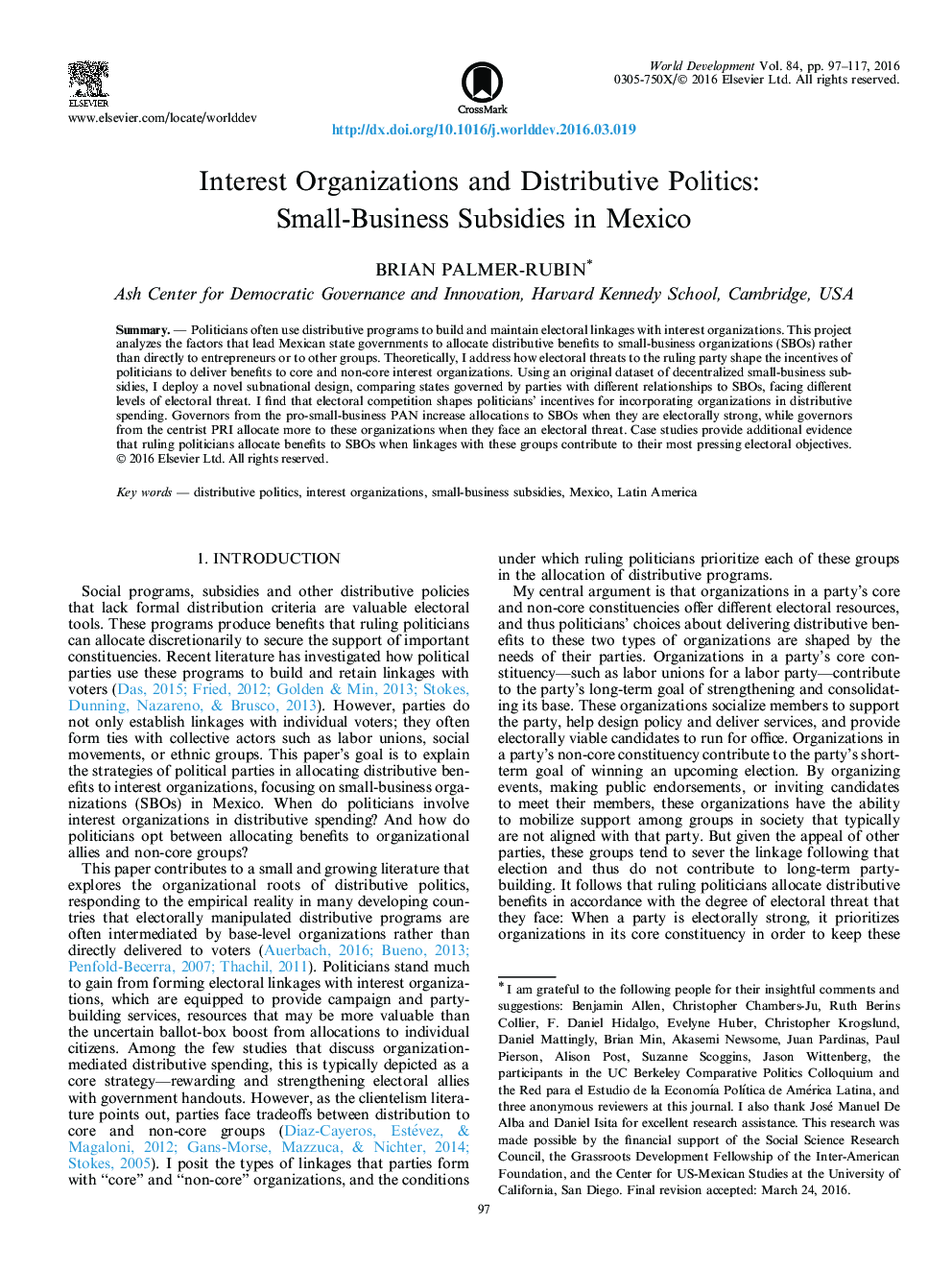| Article ID | Journal | Published Year | Pages | File Type |
|---|---|---|---|---|
| 7392531 | World Development | 2016 | 21 Pages |
Abstract
Politicians often use distributive programs to build and maintain electoral linkages with interest organizations. This project analyzes the factors that lead Mexican state governments to allocate distributive benefits to small-business organizations (SBOs) rather than directly to entrepreneurs or to other groups. Theoretically, I address how electoral threats to the ruling party shape the incentives of politicians to deliver benefits to core and non-core interest organizations. Using an original dataset of decentralized small-business subsidies, I deploy a novel subnational design, comparing states governed by parties with different relationships to SBOs, facing different levels of electoral threat. I find that electoral competition shapes politicians' incentives for incorporating organizations in distributive spending. Governors from the pro-small-business PAN increase allocations to SBOs when they are electorally strong, while governors from the centrist PRI allocate more to these organizations when they face an electoral threat. Case studies provide additional evidence that ruling politicians allocate benefits to SBOs when linkages with these groups contribute to their most pressing electoral objectives.
Related Topics
Social Sciences and Humanities
Economics, Econometrics and Finance
Economics and Econometrics
Authors
Brian Palmer-Rubin,
